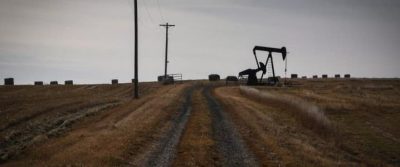The Impact of Abandoned Oil Wells on the Environment

All Global Research articles can be read in 27 languages by activating the “Translate Website” drop down menu on the top banner of our home page (Desktop version).
***
As dozens of countries across the globe focus on reducing emissions and improving environmental practices, recent studies show that abandoned oil and gas wells could be having a severely detrimental impact on the environment. Across the USA and Canada, methane is leaking out of 4 million abandoned oil and gas wells, contributing significantly to climate change. This January, researchers from McGill University announced that these leaks are causing considerably more environmental damages than originally estimated by national governments.
According to a study from Environmental Science and Technology, figures suggest Canada has underestimated its methane emissions from abandoned wells by 150 percent, and the USA by around 20 percent.
While methane emissions from abandoned wells were reported to the United Nations as part of the U.S. and Canada’s greenhouse gas inventories, experts worry that there could be as many as 500,000 undocumented wells in the USA and 60,000 in Canada contributing to these emissions.
In 2018, in the USA alone, 3.2 million abandoned oil and gas wells emitted 281 kilotons of methane, equivalent in terms of climate change to consuming 16 million barrels of crude oil.
And it’s not just in the USA and Canada that we’re seeing this problem. Extensive exploration projects by thousands of companies and governments means there are millions of abandoned wells in various states across the globe.
In the Gulf of Mexico, tens of thousands of wells are leaking methane gas into the ocean. Although all these wells are supposed to be plugged to prevent leaks, few of these plugs are monitored to ensure their effectiveness. On top of methane leaks, some of these wells are also releasing other gasses into the surrounding environment such as benzene, nitrogen oxides, carbon dioxide.
In addition, recent studies in Europe suggest that decommissioned wells could be the dominant source of methane in the North Sea. According to Geomar, there are thousands of tonnes of methane are leaking onto the North Sea floor annually.
As well as damaging the environmental, leaks from abandoned wells pose a great threat to public health. For example, there have been several instances where unmaintained wells have been linked to groundwater contamination.
Yet, beyond independent studies, there is little data available to present the whole picture on a global scale. Energy companies are understandably unenthusiastic about exploring this issue further, leaving governments and environmental organizations to slowly understand the gravity of the situation.
However, if oil majors were willing to monitor and maintain decommissioned wells more closely, they could prevent these methane leaks and their impact on the environment. In fact, better management of these wells might even buy energy companies time to introduce long-term green policies by improving the current situation without curbing fossil fuel production.
Having been overlooked for decades, abandoned wells present a substantial challenge on a global scale. Methane gasses leaking into the atmosphere could exacerbate climate change. Further, as companies justify the need to continue to produce cheap fossil fuels to provide affordable energy, while regulators and governments are putting pressure on them to reduce emissions, leaking wells present a major challenge with no reward.
*
Note to readers: please click the share buttons above or below. Forward this article to your email lists. Crosspost on your blog site, internet forums. etc.
Felicity Bradstock is a freelance writer specialising in Energy and Finance. She has a Master’s in International Development from the University of Birmingham, UK.
Featured image is from OilPrice.com

